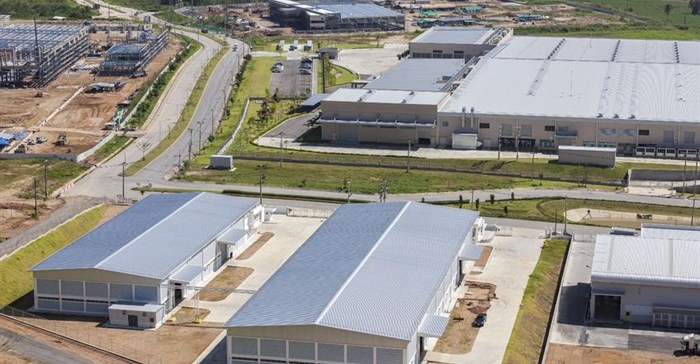Industrial property's top performance is comparison to other sectors is likely to continue going forward, according to Tony Bales, industrial property expert at Epping Property, who says that the poor performance of the listed property sector during 2018 was thankfully not a function of a bad industrial property market. "For example, Equites Property Fund, a listed fund specialising in industrial property, has been one of the top performing property funds for the last three years."
The listed property sector is now showing value, as is the directly held industrial property market. So how does one go about investing in industrial property? Bales explains that industrial property can be purchased in the following two main forms:
- Directly held, which is the most widely used method of ownership, and;
- Listed property funds. This is a more liquid form of holding property but also suffers from the fluctuations of the stock market.
“Directly owned property can be purchased either through a tender, an auction, or private treaty, where the sale is handled mainly by brokers specialising in industrial property. Listed property is bought through a stockbroker or investment advisor.”
Where can one find suitable industrial properties to purchase?
“The first step is to determine a location where one wants to invest – the most proven long-term areas are the major industrial nodes in the larger cities. Drive around the area and make sure you are familiar with it. Next, contact industrial property brokers (more than one) that specialise in that specific area and discuss with them what they think would suit you and what is the type of industrial property in highest demand by tenants,” advises Bales.
“Following this, go and have a look at actual properties for sale and make sure you get enough information up front before then contacting a financier/ bank for advice on your personal circumstances with special regard to investing in industrial property. Consult with your accountant or lawyer to make sure any intended offer to purchase will be correctly structured to suit your personal circumstances.”
“Finally, evaluate all industrial investment alternatives and select two that you are happy with - this provides a basis of comparison. Then make a correctly structured offer with a view to negotiating to close the transaction. And remember - stay calm and unemotional throughout the whole process and be prepared to walk away from anything you do not feel comfortable with.”
Factors and information to consider when evaluating an industrial property
Bales says that one should consider factors such as:
- The location of the site;
- Accessibility and road systems;
- Age and condition of the buildings;
- Modern building materials (for example, asbestos roofs will likely have to be replaced shortly);
- Loading and offloading areas by large interlink trucks (this is an increasingly important factor in 2019); and
- The flexibility of the premises (specialised premises have a smaller chance of getting rented out if a new tenant needs to be found).
“Also make sure you see the title deeds for the property as well as a formal legal description of the land, along with the municipal valuation, the town planning conditions and zoning certificate, a copy of the approved building plans and copies of all current leases.”
“Be sure to also conduct an expense analysis – taking into account the municipal charges, electricity, building insurances, repairs and maintenance estimate as well as the month-to-month administration and rent collection charges. If the property is sectionalised, you must ask to see the latest financial statements of the body corporate and a copy of the rules of the sectional scheme. Also check with the managing agents that all is in order and no special levies are due.”
Financing of industrial property
Bales cautions that newcomers to investing in industrial (and commercial) property should not underestimate the tedious process that has to be gone through to arrange finance.
“All banks arranging non-residential finance go through different in-depth processes to evaluate non-residential loans. The purchaser will have to submit mounds of documentation relating to both themselves as well as the property, and its tenants. Allow for at least 21 days (at the very quickest) for loan approval and depending on the bank, you may be referred to a non-residential lending division and always go to more than one bank.”
“Some standard industrial financing norms to be aware of are that approximately 35% of the pre-VAT purchase price will be due as a capital down-payment on the date of transfer. The lending rate on an industrial property is not as low as residential loans, and loans must be paid off over 10 years as opposed to 20 years for residential (this has the negative cash flow effect of having to pay far more in bond repayments, but the positive effect of one’s bond being paid off far quicker than a residential property).”
“Finally, read the small print,” says Bales. “There may be hidden clauses like penalties if a property is sold within the first three years, or that one needs to give the bank three months notice before a bond can be cancelled.”
Is the industrial property market likely to remain positive into the foreseeable future?
“The industrial sector is stable and operational in 2019. Businesses are learning to deal with hurdles, like load shedding, elections, 'bad news' politicians, and the volatility of the rand. Existing industrial property owners are reluctant to sell their industrial properties. Also, any expansion of the South Africa economy is likely to translate into the sudden growth of the industrial property sector.”
“While one needs to keep a close watch on the economy and consequently one’s industrial investments, the outlook for the next three years remains stable at this stage,” concludes Bales.








































